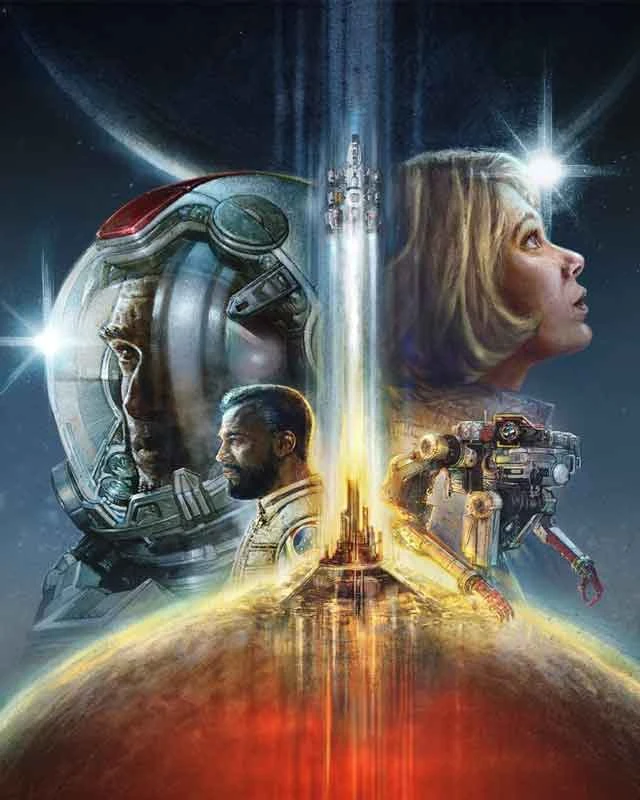So I got a message from Univus about my thoughts on the Starborn, and they gave me an interesting reflection on it regarding the Starborn's experiences as a multiverse character being reborn into the same life over and over again.
And it reminded me of an existential play I watched when I was younger. Namely, Waiting For Godot. It's an interesting spin on the Greek legend of Sisyphus, the man who was punished by the Gods and was forced to roll a boulder up a mountain each day, only to see it roll back to the foot of the mountain come nightfall. Forced to repeat the same thing over and over again.
Waiting for Godot is a similar principle, except without the boulder and without the mountain. Rather you have two men trapped in a strange kind of limbo; A purgatorial wasteland seemingly without time or memory. The two of them bicker constantly as they are waiting for a third man, namely, Godot.
And before you read any further, why not watch it for free? It's on Youtube and it's got Ian McKellen in it!
The play is nonsensical at first, the men saying impossible things. Talking about when the world was younger, how they had waited for millions of years, how life is full of the same miserable things over and over again. All they have is this appointment that seems to never come.
And I would argue that these two gentlemen are a good representation of The Emissary and The Hunter.
And in many ways, that makes the player Godot.
And yet I also feel like the idea of Unity is almost a mockery of existentialism. Because the existentialists made reconciliatory arguments for the absurdity of life. In particular, they argued for how one must come to terms with the absurdity of life by some sort of spiritual realisation that they referred to as authenticity. That the ultimate source of our misery is self-deception. Jean-Paul Sartre argued that freedom is absolute. An idea he came up with when he was in a German concentration camp because of his communist views. A very interesting parallel to Sisyphus. Because the fascists would force inmates to perform meaningless labour as a method of psychological torture. To for instance dig trenches and then fill them up again. Believing that this would numb the creative impulses of the mind and ultimately make prisoners incapable of motivating themselves to escape.
And in this predicament, Sartre argued that even in the most tyrannical prison environment that his generation witnessed, he was still free. Because in the end, he could always kill himself.
It sounds rather bleak, but it's hard to put a happy spin on life in a concentration camp. Rather, his point was that principally speaking, even though the fascists had tried to strip him of his humanity, his dignity, his free will, and his rights and recognition as a man, he could still control his own existence in the most fundamental way possible.
He also said that you do not truly know yourself until you have been dispossessed of absolutely everything. Until you live in a vacuum wherein the only thing that's left to understand is indeed yourself. A kind of Cartesian reflection on the ontological nature of human identity and awareness. This is very contrasting with the continental view, particularly Freud, Hegel and Fanon, who argued that ontology is grounded not in being deprived of one's agency, but rather in the civilising influences of being observed by others.
So one side argues that identity comes from self-awareness, and the other side argues that identity comes from self-consciousness.
But what about when you are infinite variations of yourself? How do you identity yourself when you are an infinite number of people? When your whole existence is a delineation of every possible identity? And what's more, how do you live authentically when any statement you make about yourself will inevitably come true?
We see how this creates a strange paradox. How immortality is both to exist in absolute abundance, and yet, in some metaphysical sense, to never exist at all. The Starborn dilute the self, and become stripped of their own experiences as they bleed into every experience and dissolve in a sea of memories that ultimately alienates the self from the many universes around them.
And this is I think a very fascinating circularity, because in the end we are seeing a dialectical analysis of free will in and of itself, and I would argue that absolute free will is actually the worst prison of all. If you can do everything and desire nothing, then what motives do you have left? What is your driving force? To learn? You already know everything. To create? You've already imagined everything. To survive? You've already survived everything.
From what I can tell, the only real human essence that can endure this scrutiny, that is in fact not a finite thing, is to love. And not just in the vulgar sense of the word, but rather in the theosophical sense. To understand why so many religious deities seem driven by love. Why they create a universe and life that is capable of being loved. To provide for them, and protect them, and nurture them. To see them thrive and proliferate and grow and exist. This I believe is the only truly inexhaustible motive that can keep someone from being crushed by the detachment and alienation of omnipotence.
So perhaps Sartre was right in the end. To strip away all else does reveal an essence, and I think the only surviving essence is ultimately one of compassion, creation, love and nurturing. Because destruction and exploitation are inherently finite. Only creation and growth can expand beyond one's own limitations. Because in the end, even a God has limitations. Namely, that even a God is ultimately singular in quantity. Even an infinite existence cannot exist beyond itself. It can never be two, or three, or four. It is a tree without branches.
And yet, the continental view intertwines rather nicely, as it is precisely this alienation of the absolute self that is so utterly deprived of consciousness. In Hegel's dialectic on the master-slave dichotomy, he argues that the master enslaves himself. Because his power ultimately stunts his growth. The slave creates, provides, nurtures and proliferates. Even in the slave's lowest stage of freedom, he still has the capacity of growth to become a man.
But what about the master? He has become entirely dependent on the slave. The slave is the food on his table, the roof over his head, the money in his coffers. If the slave dies, so does the master. But if the master dies, the slave is unburdened. The master is infantilised by his own oppressive impulses, which is why he must live inauthentically. He must demean and bully the slave, to treat him like an animal, to convince the slave that he can never be a man. He must put his time and his effort into asserting himself as superior to the slave, because without this deception, the slave will rebel upon realising the obvious.
And we see an example of this in the Roman empire. The senate proposed a law which said that all slaves should dress in a particular colour, as to display their lower status. As they put this law into action it was quickly repealed.
Because every time they stepped out in public, the slaves outnumbered them 1000 to 1.
This is an example of self-consciousness and self-deception, and precisely just how powerful these two forces are.









1 comment
The Egg - Andy Weir
I missed out on this mod before BGS broke it, and now I'm incredibly interested in what you have coming.
Take care!